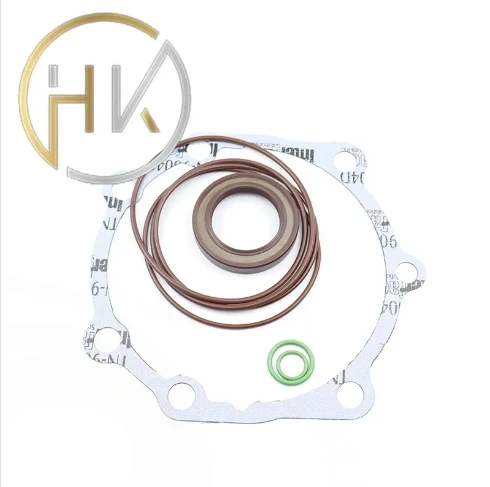Nov . 28, 2024 05:57 Back to list
Understanding Motor Seals and Their Importance in Machinery Performance
Understanding Motor Seals Importance and Applications
Motor seals are crucial components in various types of machinery, especially in automotive and industrial applications. Their primary function is to prevent the leakage of fluids, such as oil and coolant, from the areas where rotating and stationary parts meet. This article will explore the significance of motor seals, the different types available in the market, their applications, and best practices for maintenance.
Importance of Motor Seals
Motor seals play a vital role in maintaining the efficiency and longevity of machinery. They help to keep lubricants contained within the motor, reducing friction and wear on internal components. By preventing leaks, motor seals also help to maintain optimal operating temperatures, which is essential for the performance and reliability of the machine. Additionally, they protect the internal parts from contaminants such as dust, dirt, and moisture, which can lead to corrosion and mechanical failure.
Failure of a motor seal can have serious repercussions. It can lead to fluid leakage, overheating, and ultimately the breakdown of the machinery. This not only affects the performance of the equipment but can also result in costly repairs and downtime. Thus, understanding the types of motor seals and their functions is crucial for anyone involved in machine maintenance or operation.
Types of Motor Seals
There are several types of motor seals available, each suited for specific applications
. Here are some of the most common types1. Rotary Seals These seals are designed for rotating shafts and are often found in engines and gearboxes. They typically consist of a rubber or elastomer material that conforms to the shaft, creating a tight seal.
2. Lip Seals Lip seals are a subtype of rotary seals and utilize a flexible lip that makes contact with the shaft surface. They are effective at keeping lubricants in and contaminants out.
3. Static Seals Unlike rotary seals, static seals are used in applications where there is no movement between surfaces. These seals are often used in flanges, gaskets, and static joints to prevent leakage.
4. O-Rings O-rings are circular seals typically made of rubber or silicone. They are used in a variety of applications and are well-known for their simplicity and effectiveness in sealing applications.
motor seal

5. Bearing Seals These seals are typically integrated with bearings to protect them from dirt and moisture while retaining lubricants. They are crucial in ensuring the smooth operation of rotating components.
Applications of Motor Seals
Motor seals are used across various industries, including automotive, aerospace, marine, and manufacturing. In automotive applications, they are found in engines, transmissions, and differentials, where they help to keep oil and coolant contained. In the aerospace sector, seals are critical in ensuring that engines operate efficiently and safely under harsh conditions.
In marine applications, motor seals help prevent water intrusion, which can be devastating for boat engines. In manufacturing, seals are used in pumps, compressors, and hydraulic systems to maintain fluid integrity and prevent leaks.
Best Practices for Maintenance
To ensure the longevity of motor seals, regular maintenance is essential. Here are some best practices
- Regular Inspections Periodically check motor seals for signs of wear, damage, or leaks. Early detection can prevent more severe issues down the line.
- Proper Installation Make sure that seals are installed correctly, following manufacturer guidelines. Incorrect installation can lead to premature failure.
- Use Quality Seals Invest in high-quality motor seals that are suitable for the specific application to ensure optimal performance.
- Monitor Operating Conditions Be aware of the operating conditions, such as temperature and pressure, as these can significantly affect seal performance.
In conclusion, motor seals are integral to the proper functioning of various machinery. Understanding their importance, types, applications, and maintenance practices can help in optimizing machine performance and extending equipment life. By prioritizing the care of motor seals, operators can enhance the reliability and efficiency of their machinery, leading to improved productivity and reduced costs.
-
The Trans-formative Journey of Wheel Hub Oil Seals
NewsJun.06,2025
-
Graphene-Enhanced Oil Seals: Revolutionizing High-Pressure Oil Sealing
NewsJun.06,2025
-
Future of Hydraulic Sealing: Advanced Intelligent TCN Oil Seals
NewsJun.06,2025
-
Don’t Let a Broken TCV Oil Seal Ruin Your Day
NewsJun.06,2025
-
Bio-Inspired Dust Seals for Better Sealing Performance
NewsJun.06,2025
-
Biodegradable and Sustainable Hydraulic Seal Materials
NewsJun.06,2025
-
Top Oil Seal Solutions for Your Industrial Needs
NewsMay.22,2025
Products categories
















